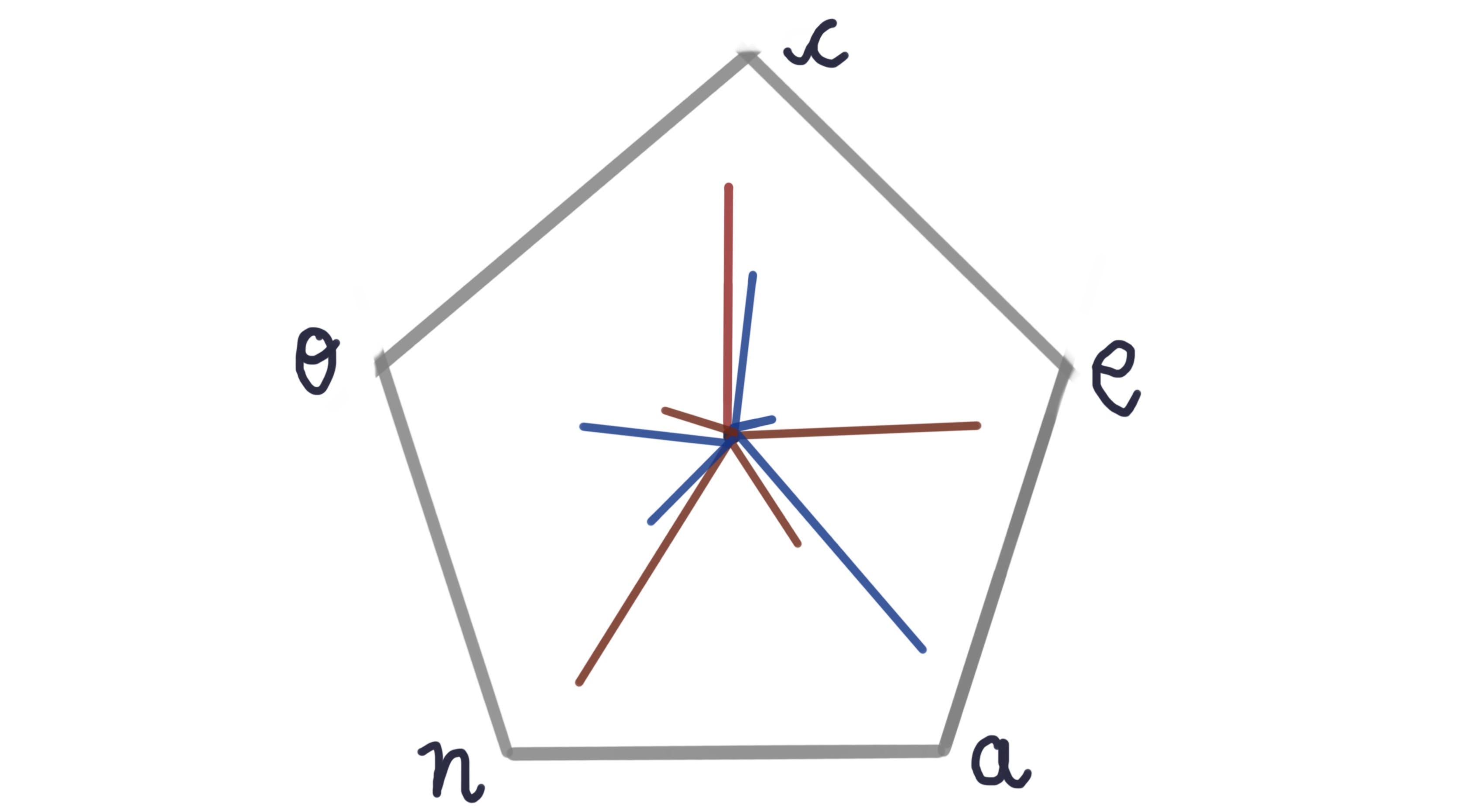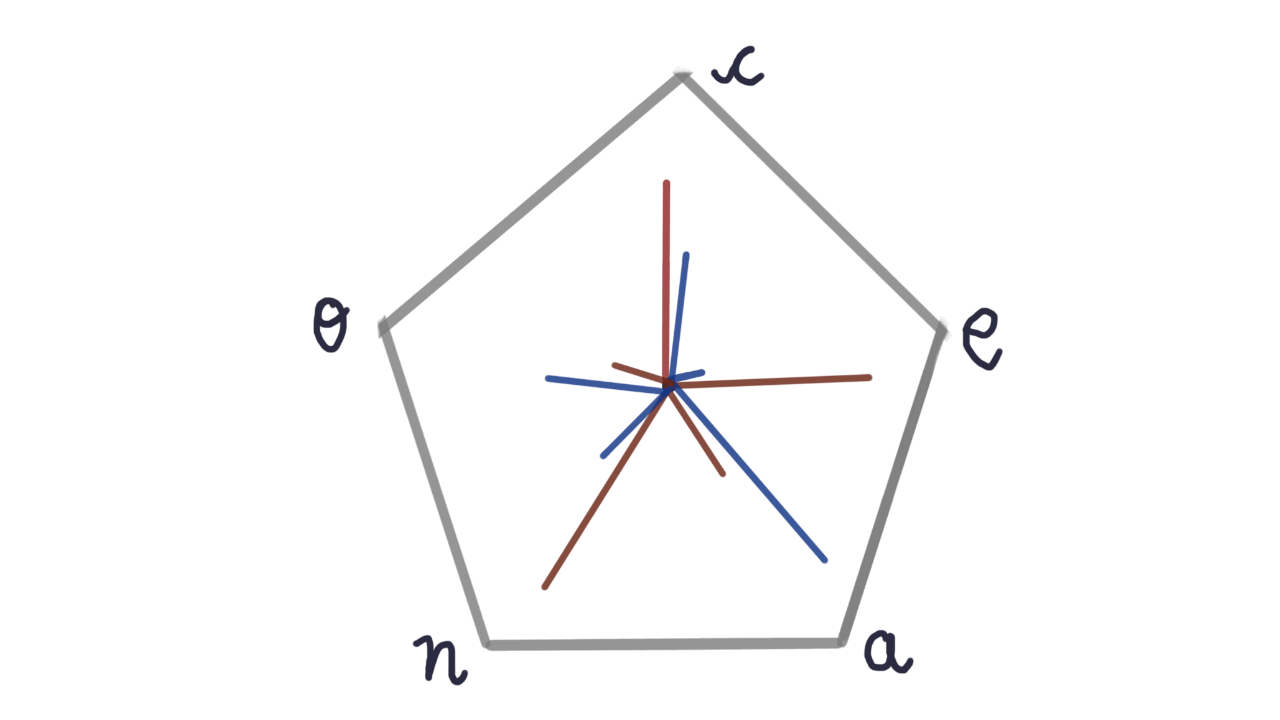The Personality Loop
I was timid. Happy in my special corner, away from the “cool kids”. I had zero ambition to be someone. No expectations, no responsibilities. Just me and my small friend circle. We’d occasionally get tricked by the “cool kids”. That sucked.
High school changed everything though. It came with its dose of puberty and I started seeing my girl–friends as girls. I wanted more friends, so I inserted myself into more social circles. I started talking more. I liked this.
Come final year, and I had had enough of this shit. I found a new world in my books. I liked this more.
Have you realised how you change? Or how people around you change?
Friends drifting apart?
A quiet kid in school turning into a social rockstar?
The asshole turning into a nice guy?
The sensitive guy turning into an ignorant arrogant guy?
The master procrastinator who just started getting things done?
It’s usually more subtle. Like you thinking to yourself,
“He has changed.”
“She has changed.”
Let’s talk about why, and how we can reverse engineer it.

In the 1960s, a research project attempted to compile the possible human personalities by listing out what all we can describe: they took a dictionary and classified all words into 16 possible personality types.
Over time, they threw out most of these personalities as the psychologists realised that these came and went over time.
They zeroed in on five core personality traits, known as the Big Five.
They wanted to simplify personalities and create a base to judge people on. You are this, you are that. It helped progress research, and is still a model in use. However, the map isn’t the territory.
Over time, we figured out that personalities aren’t constant. We can flow from one personality into another.
This brings me to the personality loop. I don’t have research to back this up, but I’ve seen this work for me. I’ve run experiments and I’ve seen it work on other people. Hence, I present my hypothesis on how to hack your personality.1
Now, let’s start at the base with the five core traits and establish a reasoning for plasticity of the human personality. I feel like a researcher already, using such big words.
The five big traits, as accepted in Psychology.
Openness to experience
Conscientiousness
Extraversion
Agreeableness
Neuroticism
In terms I understand better:
Openness to experience → (curious vs. cautious)
Conscientiousness → (efficient/organized vs. easy-going/careless)
Extraversion → (outgoing/energetic vs. solitary/reserved)
Agreeableness → (friendly/compassionate vs. challenging/detached)
Neuroticism → (sensitive/nervous vs. secure/confident)
You have stocks of each kind of personality, just like the Tale of Two Wolves.
Each trait is a spectrum. This is the important bit. For example, take extraversion. The scale is from an introvert to an extrovert, with ambivert in the middle.
Why do I choose to do it like this? Because you aren’t always acting the same way. Sometimes, there are spikes of extraversion, and sometimes introversion, which together make up your place on the spectrum.
This is true for all 5 traits, thus creating what I like to call, the pentagon of personality.
 The pentagon of personality
The pentagon of personality
To represent this better, I’ve use red lines for one side and blue lines for the other side of the spectrum. Taken together, they find your place on the spectrum.
What it really is though, is something like this:
 A double pentagon pyramid?
A double pentagon pyramid?
We begin at zero. As a baby with zero biases and zero personality. Every experience we have in our life gives us experience points. It’s like your favourite video game — we level up in each of the five traits via experience points gained.
You be an asshole, you gain asshole experience points.
You be nice, you gain nice-ness experience points.
Over time, we gain enough experience points to level up. We reach a stage where we identify with the trait.
This is inline with what competing research says: the permanent plasticity of the human brain. You are what you do. Be it aged five or fifty.

Why then were the psychologists convinced that these traits are set in stone?
Because not all experiences are equal. Every second spent on earth isn’t equal. Not all experience points we gain are equal.
Given the experiences we’ve had and the biases we’ve built, every new experience matters a little less. It modifies our traits a little less. The brain shuts down to ideas uprooting our existing ideas. Inconsistency-avoidance tendency, as the legendary Charlie Munger calls it.
Like turning a Lvl. 95 warlord into a mage. If the max level is 100, you’re going to have a hell of a time turning into a mage. You have no experience points left.
In the human world — this translates to the decay in value of experience that you get.
Been an extrovert for fifty years? Good luck gaining enough introversion-experience points to turn into an introvert.
Here’s a beautiful illustration explaining the decay of perceived time value. Or why time moves faster as you get older.
No wonder we think of adults as “set in their ways”.
Given these two ideas,
-
You are what you do
-
What you do matters less the older you get
we can create a strategy to engineer our personality.
In this personality feedback loop, the first idea, you are what you do, is the reinforcing loop. The second idea — what you do matters less the older you get — is the balancing loop.
If you aren’t familiar with Systems, I recommend reading this. It’s not necessary for the takeaways, only for the derivation.
We are dealing with a system with one reinforcing, one balancing loop. This is a system with delays, since you perceive the change in personality after some time. Thus, the system is also prone to oscillations.
This makes two things clear.
The more obvious one, which most people have heard but seldom followed through on —
Do what future-you does, not what present-you does
Say you want to become an introvert. Start hanging out by yourself more. Read books. Go to the movies alone. Embrace the discomfort. Soon, you’ll gain enough introversion experience points to become an introvert on the spectrum. Your pentagon of personality will skew towards introversion.
Likewise for extraversion. The idea isn’t to tell you exactly what to do, but the why, so you can figure out the “what” yourself, in line with your personality and goals.
Give a Man a Fish, and You Feed Him for a Day.Teach a Man To Fish, and You Feed Him for a Lifetime.
Just this insight isn’t enough.
Most people get discouraged too soon. If you’ve been an extrovert all your life, turning into an introvert in a day just because you spent the day indoors is impossible. The reason? The second idea. The experience points you gain in introversion in a day is nothing compared to the experience you’ve accumulated over the past 20 years. You’re a warlord trying to become a mage.
Keep at it though, and since this isn’t the end of your time, you’ll gain enough experience points to level up and identify as an introvert too, or more probably, an ambivert.
It’s also a good time to consider the time commitment — how much do you want that change in personality? Enough to spend the rest of your life being that way?
There is no secret ingredient. It’s just you, what you do, and how long you do it for.
You are what you do persistently.
Ten years from now when this quote becomes commonplace, you know where you heard it first.

One final straw. This idea isn’t limited to the five core personalities. For what your personalities are, is a mix up of lots of attributes. It’s a mess.
Kudos to the psychologists for tracing out the shining Big Five out of the mess, but hey, if you want to, you could work on something that attracts you more.
 I’m the unicorn on the far-end of the rainbow living on the dark-side of the moon. Problem?
I’m the unicorn on the far-end of the rainbow living on the dark-side of the moon. Problem?
Everything you want to be follows this. Here’s an example from my life — about embracing fear.
I’d been rusty with my social interaction skills. So, I jumped up at the opportunity to go to the club. I don’t remember the last time I had butterflies in my stomach like that, making eye contact with a pretty girl (Hey, I’m still a kid at heart ). It took me about half an hour to gather the discomfort, realise that if I didn’t do this I’d be setting up a precedent for next time, and go talk to her.
I pretty much botched it….. and managed to use her chair as my coat hanger. Note to self: I should’ve been more interested in her than finding a coat hanger. ( You know how those atrocious places charge extra to hang your coat? Blasphemy! )
Anyhow, it set up the right kind of precedent. Over the next few weeks, I talked to more pretty girls, made a few friends, one potential date, all based on the momentum of that first push.
How fearful you‘ve been in the past instills fear
How fearless you’ve been in the past instills courage
I’m so glad I embraced that opportunity. Teaching myself to be fearless!
I’m fighting against 100,000 years of evolution though — so I’m not sure if I’ll ever stop feeling fear — be it about approaching a pretty girl or changing jobs. What it can do though, is teach me to be comfortable with fear.
Your turn.

-
(If you’re a psych-grad / to-be grad and would like to research this, please get in touch) ↩
You might also like
- Agentic Debt
- What I learned about burnout and anxiety at 30
- How to setup duration based profiling in Sentry
- How to simulate a broken database connection for testing in Django

](https://cdn-images-1.medium.com/max/2000/0*AWexOQzacSLyCEYw.jpg)
](https://cdn-images-1.medium.com/max/6000/0*ppgnquPfoxa7CWgZ)